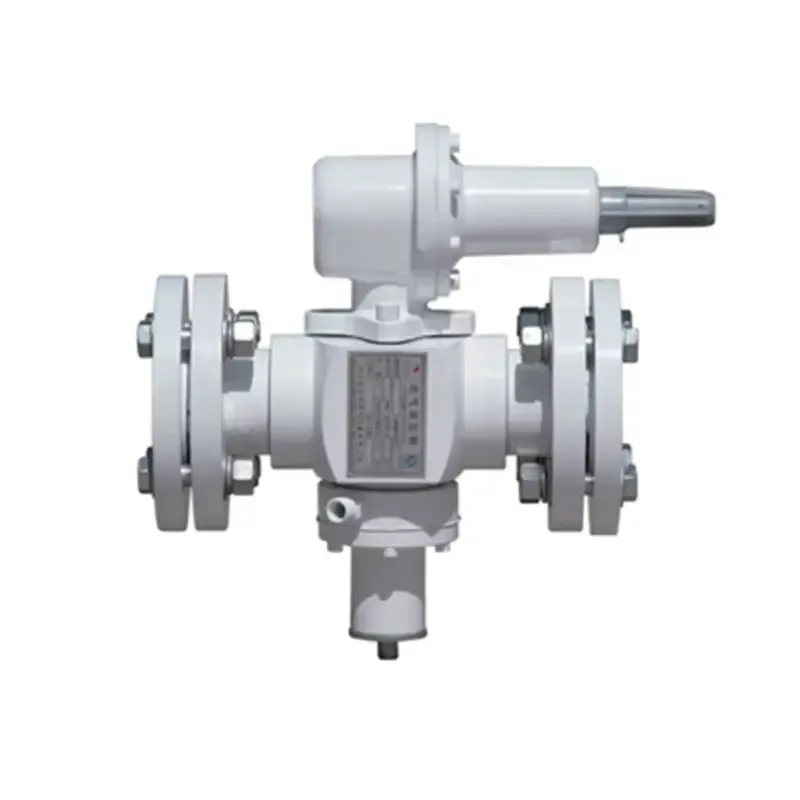
Nov . 21, 2024 15:18
Back to list
صمام أمان الغاز الطبيعي
The Importance of Natural Gas Safety Valves
Natural gas is a crucial energy resource that powers homes, businesses, and industries worldwide. However, with its extensive use comes the responsibility to ensure safety to prevent disasters. One of the essential components in ensuring the safe use of natural gas is the safety valve. This article will explore the importance of natural gas safety valves, their functionality, and their role in maintaining safety and efficiency in gas systems.
What are Safety Valves?
Safety valves are mechanical devices designed to automatically release substances from a boiler, pressure vessel, or other systems when the pressure or temperature exceeds preset limits. In the context of natural gas, safety valves act as a critical line of defense against overpressure situations that can lead to catastrophic failures, such as explosions or leaks.
How Do Safety Valves Work?
The primary function of a safety valve is to prevent excessive pressure build-up within pipes and containers. In a natural gas system, these valves are installed in various locations, including gas storage tanks and pipelines. When the pressure in these systems exceeds the safe threshold, the safety valve opens automatically to release gas, thus preventing the pressure from reaching dangerous levels.
Safety valves are designed with specific pressure ratings, ensuring that they only open when the pressure rises above these limits. Once the pressure falls back to safe levels, the valve closes, ensuring that the system can operate normally. This automatic operation is crucial, as it eliminates the need for manual intervention in potentially hazardous situations.
.
While safety valves play a vital role in maintaining the safety of natural gas systems, their effectiveness is dependent on regular maintenance and inspection. Over time, safety valves can become corroded, clogged, or otherwise compromised, rendering them ineffective. Routine checks ensure that these devices are functioning correctly and can perform their intended role when needed.
صمام أمان الغاز الطبيعي

Inspections typically involve checking the valve’s seals, mechanisms, and pressure settings. If any anomalies or signs of wear and tear are detected, prompt repairs or replacements are necessary. Additionally, regular testing of safety valves is crucial to determine their response time and effectiveness. This proactive approach ensures that safety valves remain reliable and ready to act in an emergency.
The Role of Safety Valves in Preventing Disasters
Incidents involving natural gas leaks or explosions can have devastating consequences, resulting in loss of life, injuries, and property damage. Safety valves are instrumental in preventing such disasters by controlling the pressure within gas systems. For example, during major earthquakes or other events that might disrupt natural gas lines, safety valves provide a fail-safe mechanism that helps to avert potential disasters.
Furthermore, the integration of advanced technologies into safety valve designs has enhanced their reliability. Modern safety valves use smart sensors and electronic controls to provide real-time monitoring of gas systems. This technology allows for immediate alerts in the case of pressure anomalies, enabling swift responses to mitigate risks.
Regulatory Standards and Compliance
Governments and regulatory bodies impose strict standards regarding the installation, maintenance, and operation of safety valves in natural gas systems. Compliance with these regulations is crucial for ensuring the safety and reliability of gas systems. Companies involved in the production, distribution, and storage of natural gas must adhere to these standards to minimize risks and protect the public.
Training for personnel involved in operating and maintaining gas systems is also a key aspect of ensuring safety. Staff should be well-informed about the functionalities of safety valves, as well as the procedures for conducting regular inspections and maintenance.
Conclusion
Natural gas safety valves are vital components in the safe management of one of the most widely used energy sources globally. Their ability to control pressure and prevent hazardous conditions is critical in reducing the risk of leaks and explosions. By investing in regular maintenance, adhering to regulatory standards, and staying updated with technological advancements, we can ensure that these safety devices operate effectively. A commitment to safety not only protects lives and property but also fosters public trust in the natural gas industry as a whole.
Next:
Latest news
-
Safety Valve Spring-Loaded Design Overpressure ProtectionNewsJul.25,2025
-
Precision Voltage Regulator AC5 Accuracy Grade PerformanceNewsJul.25,2025
-
Natural Gas Pressure Regulating Skid Industrial Pipeline ApplicationsNewsJul.25,2025
-
Natural Gas Filter Stainless Steel Mesh Element DesignNewsJul.25,2025
-
Gas Pressure Regulator Valve Direct-Acting Spring-Loaded DesignNewsJul.25,2025
-
Decompression Equipment Multi-Stage Heat Exchange System DesignNewsJul.25,2025

